
4 minute read
Strength in numbers
Thanks to high demand and new business models, the serviced apartment sector is flourishing
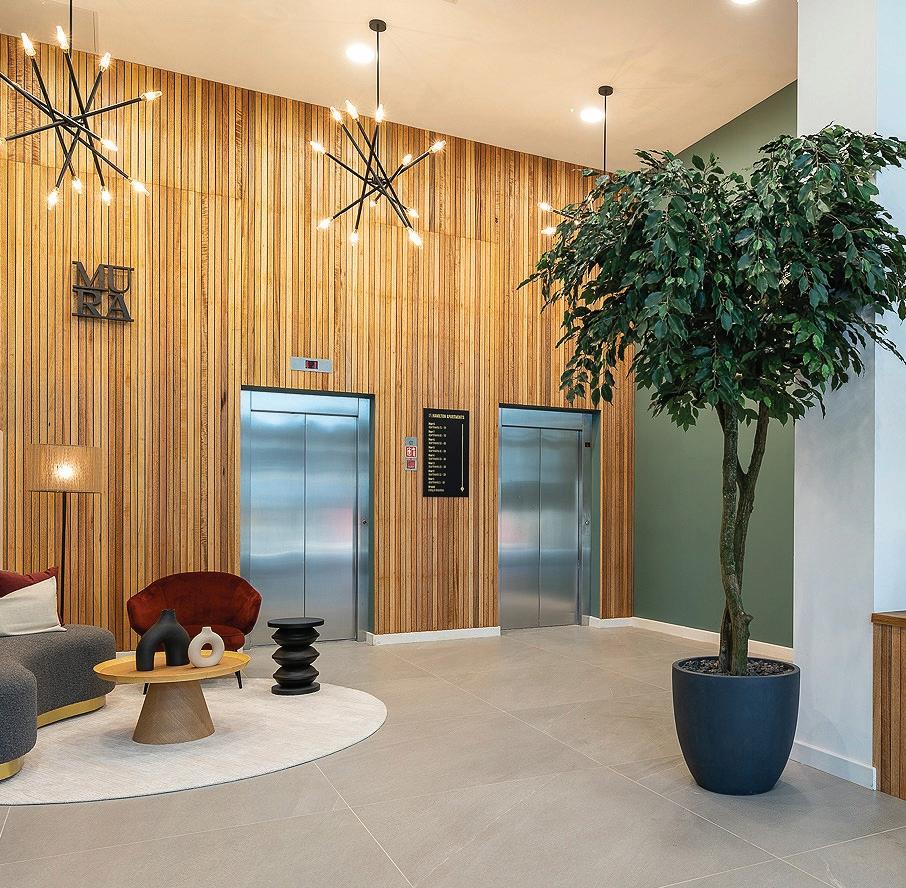

The raised profile of serviced apartments during lockdowns continues to stand the industry in good stead, and if there were any doubt figures from STR are testimony.
For the full year 2022, serviced apartment occupancies nationwide were 78% compared to 73.5% for hotels, in regional UK (excluding London) they were 76.2% versus 73.4% and in London they averaged 80.5% versus 73.8%.
Nightly rates were also strong: £147 versus £110 for hotels nationwide, £101 compared to £85 regional, and £192 versus £183 in London. Higher rates, according to STR Senior director Thomas Emanuel, are down to three factors: “Location – serviced apartments are in big cities, not on the side of motorways, in rural communities or smaller towns; class differentiation – serviced apartments are not budget and the budget hotel market represents a big percentage of rooms in the UK, it is one of the dominant players; and space – only a minority of rooms in hotels is suites and you pay more for the space in serviced apartments."
If it hadn’t been for omicron at the beginning of last year, it would have been a record year for Flying Butler, which enjoyed 94% occupancy in October and 86% in November. "That's unheard of at that time of year,” remarks CEO Dominic Sherry, who sees more corporates using them and for longer stays.
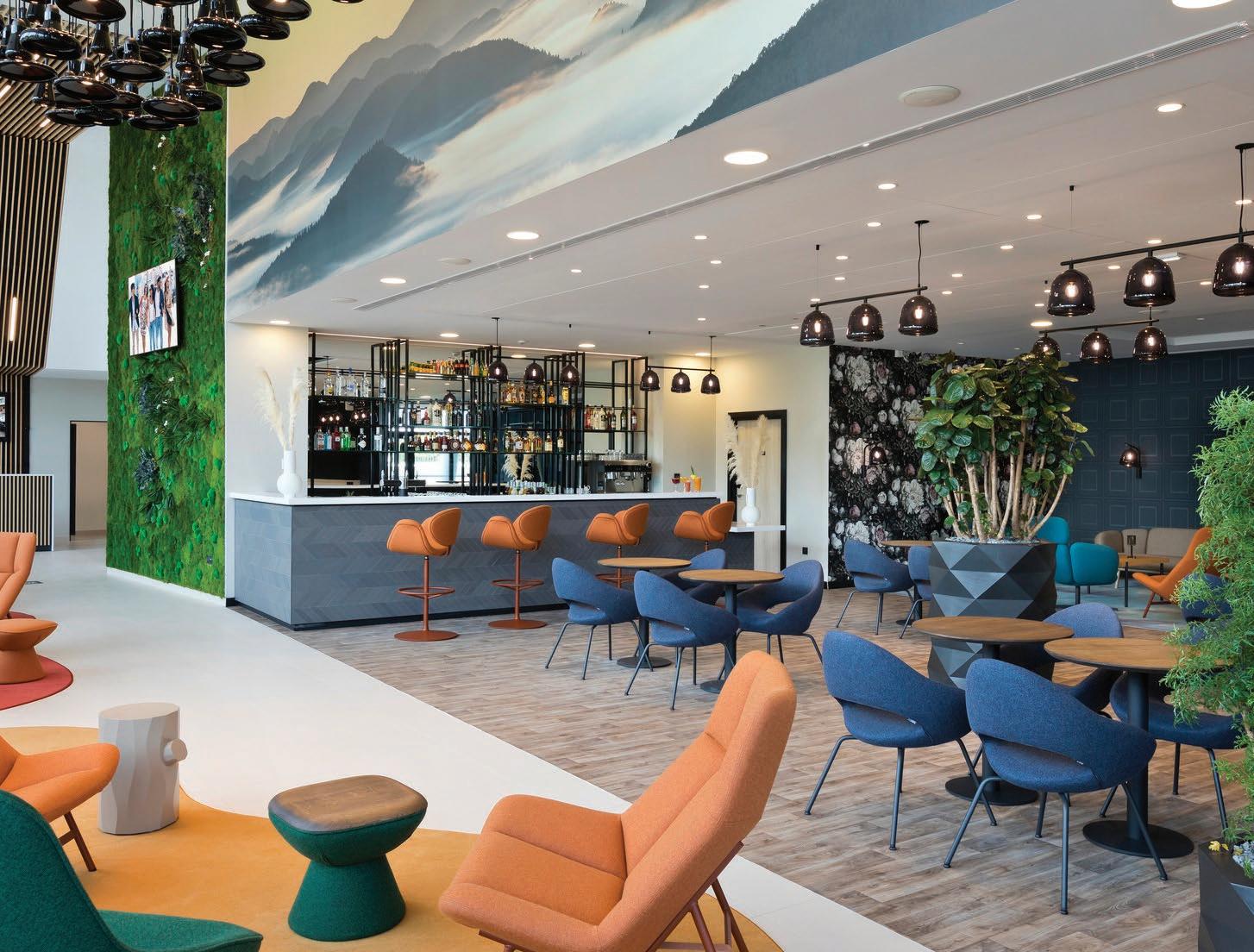
Figures from Frasers Hospitality are also markedly positive. “We are seeing really strong performance across all properties in all regions,” says COO Rebecca Hollants van Loocke. “Those in Paris and Berlin are also showing very strong demand, with advance bookings more than 200% higher than 2021 levels.”
This positive environment has spawned the setting up of consultancy, Ariosi by SilverDoor. “We’re experiencing an unprecedented level of investor resilience, institutional appetite, sector maturity and a narrowing yield gap between hotels and serviced apartments,” says the consultancy's new COO Joanna Cross.

“This represents a tremendous opportunity for operators to improve performance and profitability and there is value to the serviced apartment industry in creating a centralised hub of knowledge, resource and advice; that’s what we are here to do,” she says.
CEO of ASAP James Foice also sees raised interest in investment. “I am contacted on a weekly basis by investors looking to move into the sector, generally by acquiring businesses,” he says. He also notes that some members of ASAP are in conversations about mergers and consolidation, which will mean fewer brands.
Sustainability shift
ASAP and US-based Corporate Housing Providers Association (CHPA) are pushing sustainability but some members are saying they are not seeing many buyers ask for it

“In my world that is categorically not the case," says global Procurement Director for Travel mobility for Accenture, Jan Jacobsen. "I recently had a meeting with industry peers and everyone is going down that path."
Foice believes an industry-wide shift is required. “We had the same debate about accreditation six years ago, where there was a perception that the travelling community wasn’t asking for it and there is still a feeling in some quarters that RFPs are driven by price,” he says. “Collectively, we must change that if sustainability is going to be pivotal.”
ASAP has introduced ‘Join the Journey’ to encourage members to do just that. “The starting point is measuring carbon output through targeting reductions; it is about initiatives to lower output,” says Foice.
Technology continues to be a sticking point. “There are more platforms available but they don’t seem to have made inroads yet, which is disappointing,” Foice adds.
However, technology companies are increasingly enquiring about sponsoring ASAP to get access to members and the association recently signed booking.com and Sky. “They may challenge the age-old route through an agent,” he says.
CWT says the share of room nights booked at the major extended-stay brands, as a proportion of room nights across all accommodation types, was 30% higher in 2022 than in 2019.
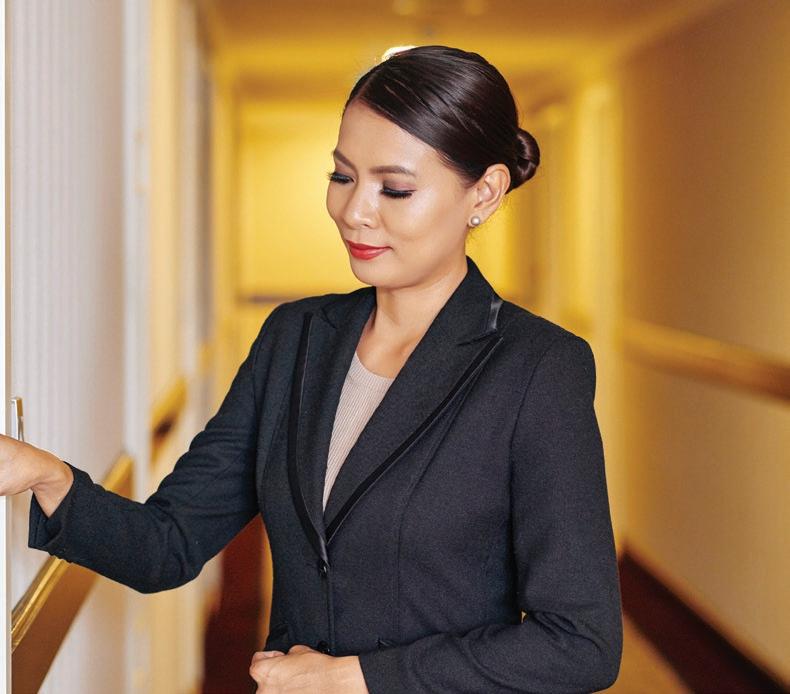
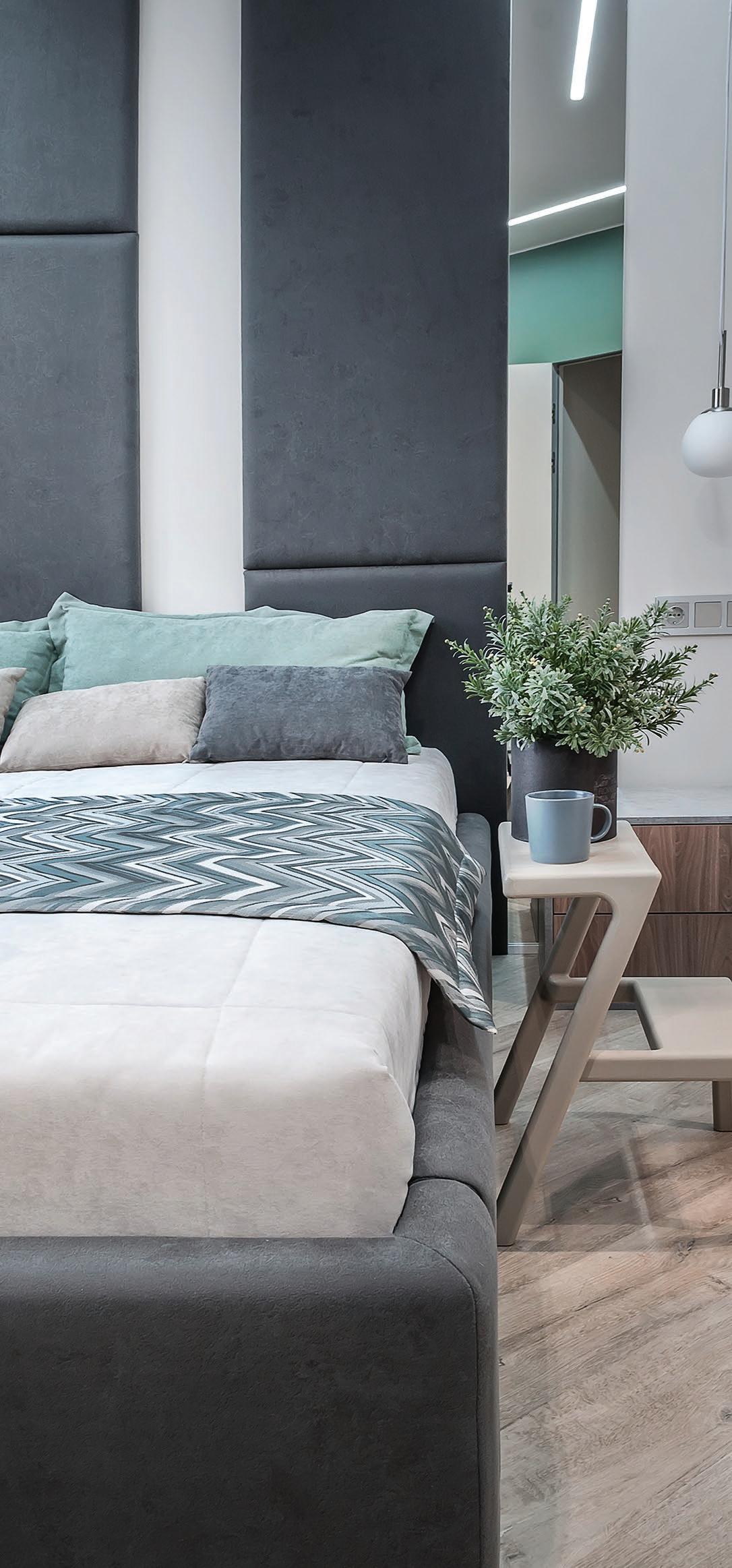
Growth strategies
The Ascott is pushing out the boundaries, moving into Austria with a franchise partner. “Franchising enables us to explore territories where, with our investment strategy, we did not previously go, and to strengthen our network in Europe,” says managing Director Europe, Ngor Houai Lee. By October 2022, more than 80% of Ascott’s properties worldwide were signed under management and franchise contracts, up from 39% in 2011.
Adagio, which unveiled a fresh new brand at the start of this year, is also expanding through franchising.
According to Savills, London continues to be the biggest growth market with just under 3,000 units in the pipeline, a 26.7% increase. But key regional and emerging destination cities such as Stuttgart and Belfast in Europe are leading future expansion at 372% and 337% respectively, partly due to greater opportunities.
“European serviced apartment supply is forecast to expand by 21.2% over the next three years,” says Director of Commercial Research marie Hickey.

The sector is on a roll and new business models are also extending the options. The crossover between serviced apartments, build to rent (BTR) and co-living is being propelled by a greater focus on cost and inventory management.

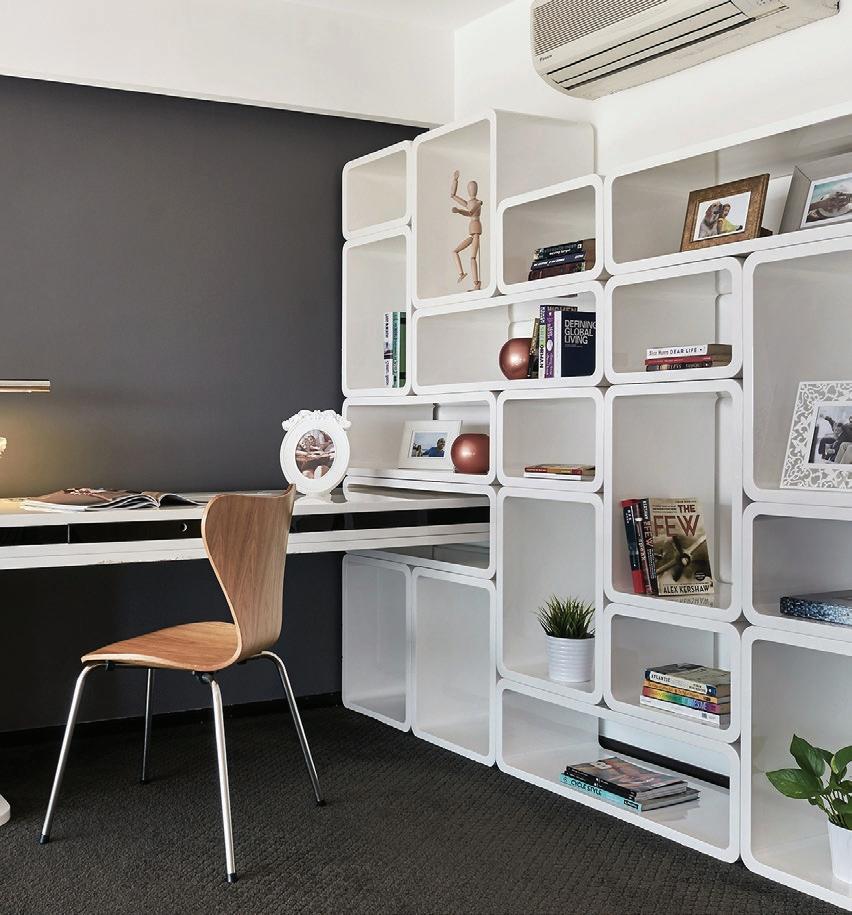
“With investor appetite for BTR to continue, we expect to see more serviced apartment operators move into BTR/ co-living management and/or incorporate these elements into their offer,” she says.
Flying Butler Apartments is a case in point and has moved into BTR with mura Living. “BTR represents only 3%-4% of the residential market; the potential is huge,” says CEO Dominic Sherry.
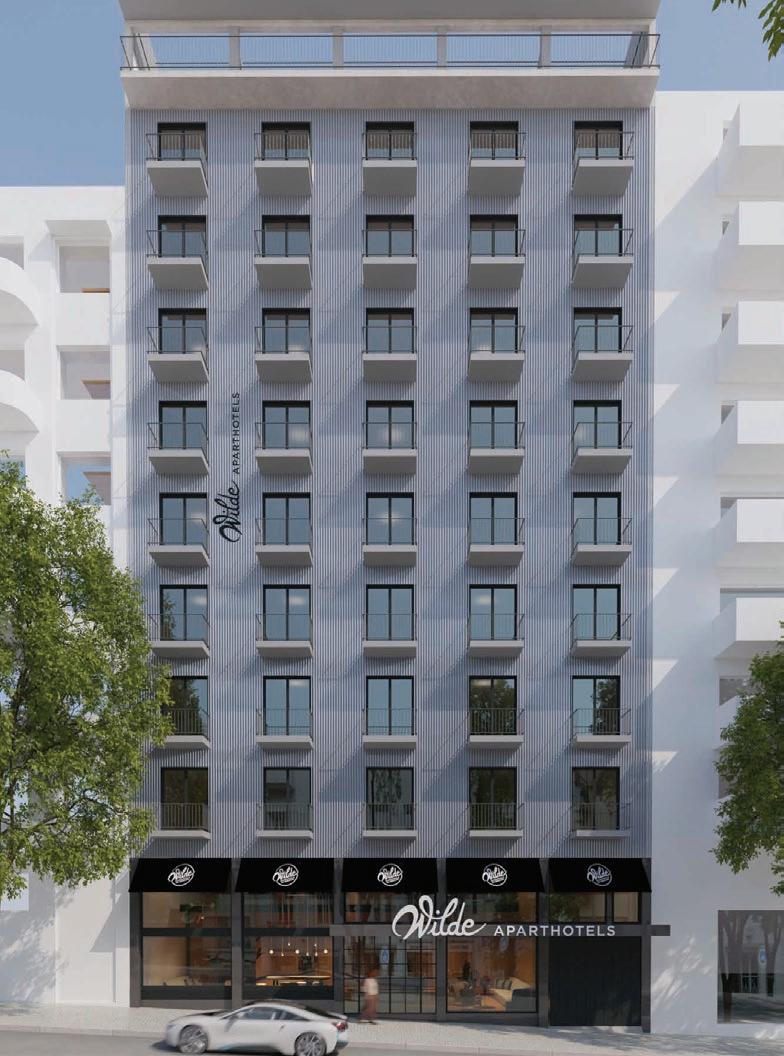

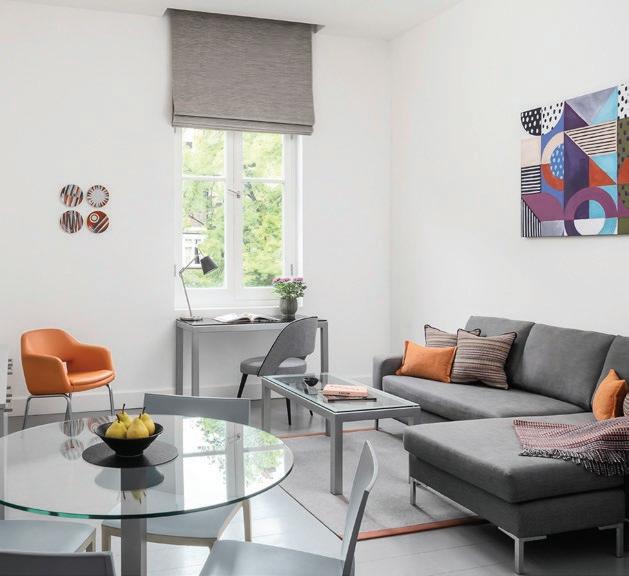
The company’s first BTR property opened in Hemel Hempstead last December with a gym, lounge, working and dining areas and a media room. The 79-room building is 20% Flying Butler short stay and 80% BTR.
“It allows our serviced apartment guests to have the facilities of a BTR building, plus full-time concièrge, housekeeping and maintenance onsite,” says Sherry.

Flying Butler plans to expand to around 2,000 apartments and 5,000 BTR units over five years, also adding serviced apartments.
Adagio is incorporating an element of co-living into its Paris Bercy property, while Ascott’s co-living brand Lyf secured its first European site in Paris in 2021. Ascott plans to have 150 Lyfs with 30,000 units by 2030. Synergy recently redesigned a former hotel into an apartment block, which provides larger co-working space.
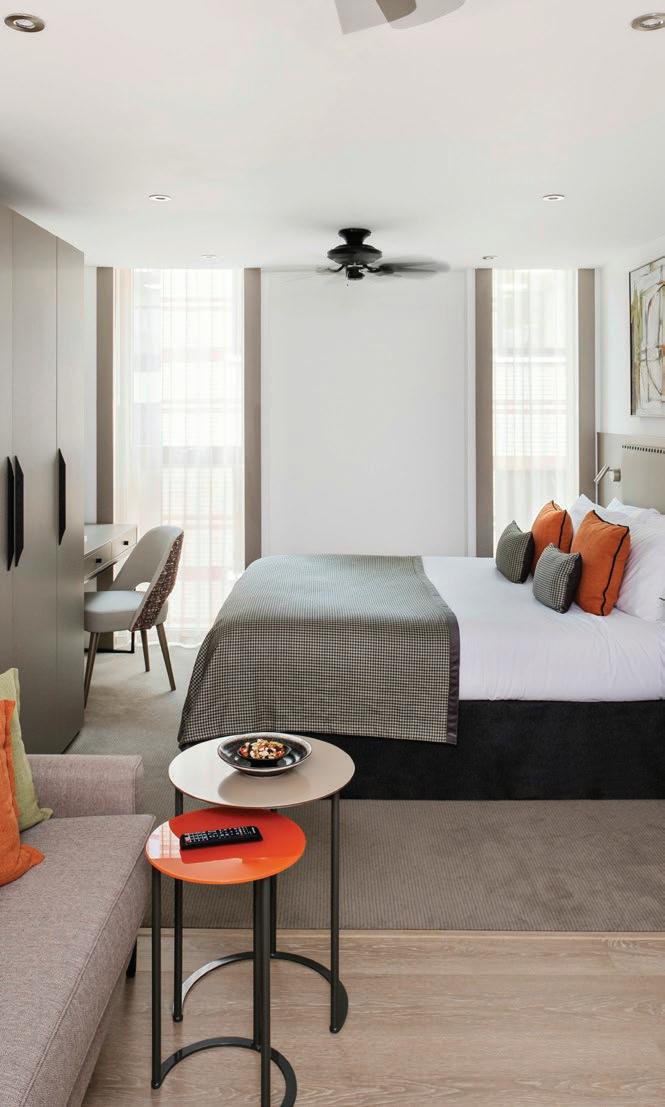

In another spin on the genre, STAy Camden in mixed-use Holly Wharf, owned by sister company Labsgroup, benefits from workspaces and F&B. “This brings operational efficiencies; they share back of house, facilities and property management, and cleaning,” says Vice President Operations Sam ghosh.








